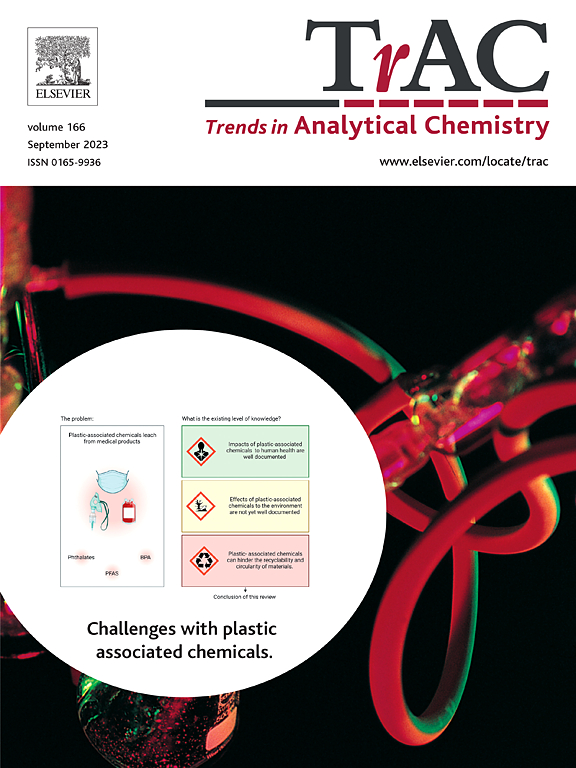Recent Application of CRISPR/Cas in Plant Disease Detection
IF 11.8
1区 化学
Q1 CHEMISTRY, ANALYTICAL
引用次数: 0
Abstract
Plant diseases have significant adverse impacts on the food security and biodiversity, making effective diagnosis extremely essential for efficient and sustainable plant disease management. Clustered regularly interspaced short palindromic repeats (CRISPR) and the CRISPR-associated protein (Cas)-based systems have emerged as powerful tools for detecting plant pathogens, due to their fast speed, and excellent accuracy. However, a comprehensive systematic review of the application of CRISPR/Cas in plant disease diagnosis is lacking, which partially hampers the practical application. This review firstly discusses the underlying principles of CRISPR/Cas-based biosensing technology. Then it highlights the significant applications in detecting plant viruses, bacteria, and fungi. Finally, it provides insightful analysis and predictions regarding the future development of the CRISPR/Cas system for diagnosing plant diseases. This review not only contributes to the advancement of plant disease diagnosis technology based on the CRISPR/Cas system, but also offers inspiration for smart plant protection and precision agriculture.

CRISPR/Cas在植物病害检测中的最新应用
植物病害对粮食安全和生物多样性具有重大的不利影响,因此有效的诊断对于高效和可持续的植物病害管理至关重要。聚类规则间隔短回文重复序列(CRISPR)和基于CRISPR相关蛋白(Cas)的系统由于其快速和优异的准确性而成为检测植物病原体的有力工具。然而,缺乏对CRISPR/Cas在植物病害诊断中的应用的全面系统综述,这在一定程度上阻碍了其实际应用。本文首先讨论了基于CRISPR/ cas的生物传感技术的基本原理。然后重点介绍了在检测植物病毒、细菌和真菌方面的重要应用。最后,对CRISPR/Cas系统在植物病害诊断中的未来发展进行了深入的分析和预测。本文综述不仅为基于CRISPR/Cas系统的植物病害诊断技术的发展做出了贡献,也为智慧植保和精准农业提供了启示。
本文章由计算机程序翻译,如有差异,请以英文原文为准。
求助全文
约1分钟内获得全文
求助全文
来源期刊

Trends in Analytical Chemistry
化学-分析化学
CiteScore
20.00
自引率
4.60%
发文量
257
审稿时长
3.4 months
期刊介绍:
TrAC publishes succinct and critical overviews of recent advancements in analytical chemistry, designed to assist analytical chemists and other users of analytical techniques. These reviews offer excellent, up-to-date, and timely coverage of various topics within analytical chemistry. Encompassing areas such as analytical instrumentation, biomedical analysis, biomolecular analysis, biosensors, chemical analysis, chemometrics, clinical chemistry, drug discovery, environmental analysis and monitoring, food analysis, forensic science, laboratory automation, materials science, metabolomics, pesticide-residue analysis, pharmaceutical analysis, proteomics, surface science, and water analysis and monitoring, these critical reviews provide comprehensive insights for practitioners in the field.
 求助内容:
求助内容: 应助结果提醒方式:
应助结果提醒方式:


